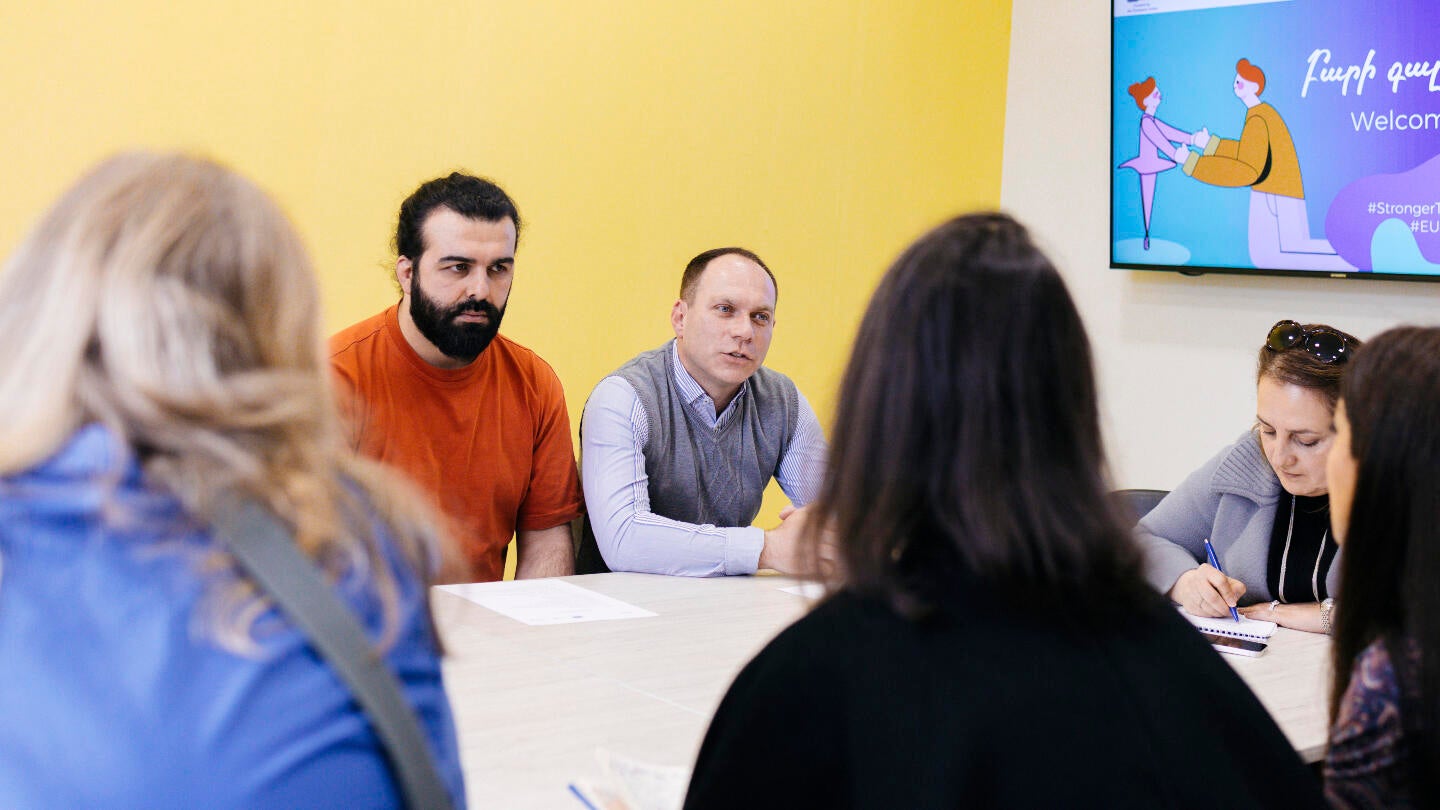From the bright and cozy walls of Family Corners to the community halls across the regions, joint efforts for equality reshape family relationships and change perceptions in Armenia. At the heart of this transformation is the EU-funded "EU 4 Gender Equality: Together Against Gender Stereotypes and Gender-Based Violence" programme, implemented by UNFPA and UN Women.
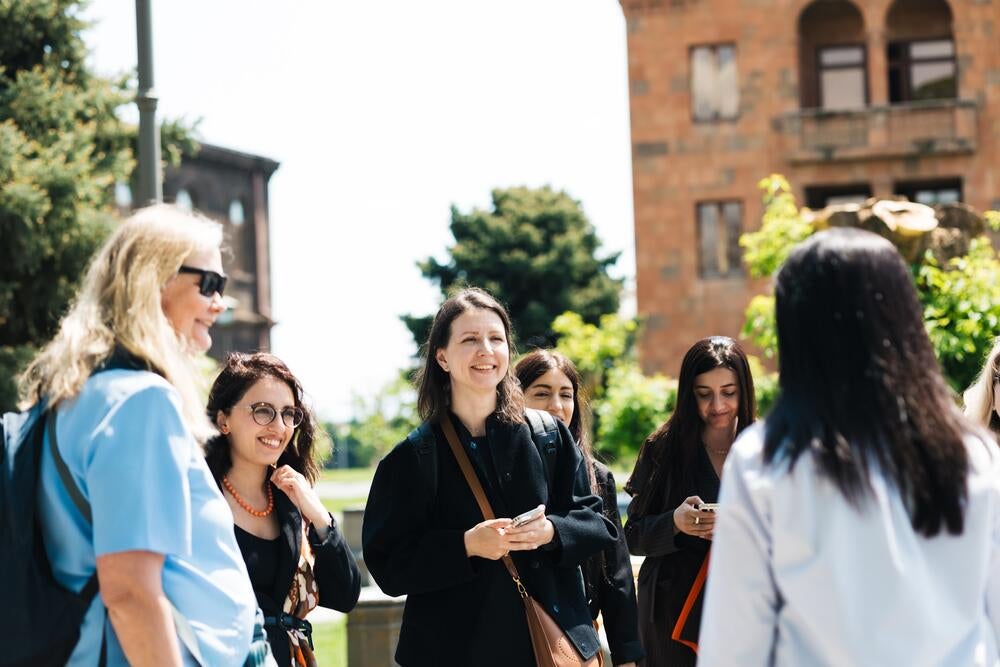
During her visit to Armenia on April 27–May 1, Lena Karlsson, Programme Manager at the Directorate General for Enlargement and Eastern Neighbourhood, met with government officials and parliamentarians, grassroots activists, fathers, and youth, witnessing how equality is being built, conversation by conversation, family by family.
“Within the EU 4 Gender Equality programme, men and boys are essential partners in challenging gender norms and discriminatory behaviour,” said Lena Karlsson. “Gender equality is not a distant goal – it’s a human right and something we’re building together every day. It is a priority for the European Union and essential for sustainable development.”
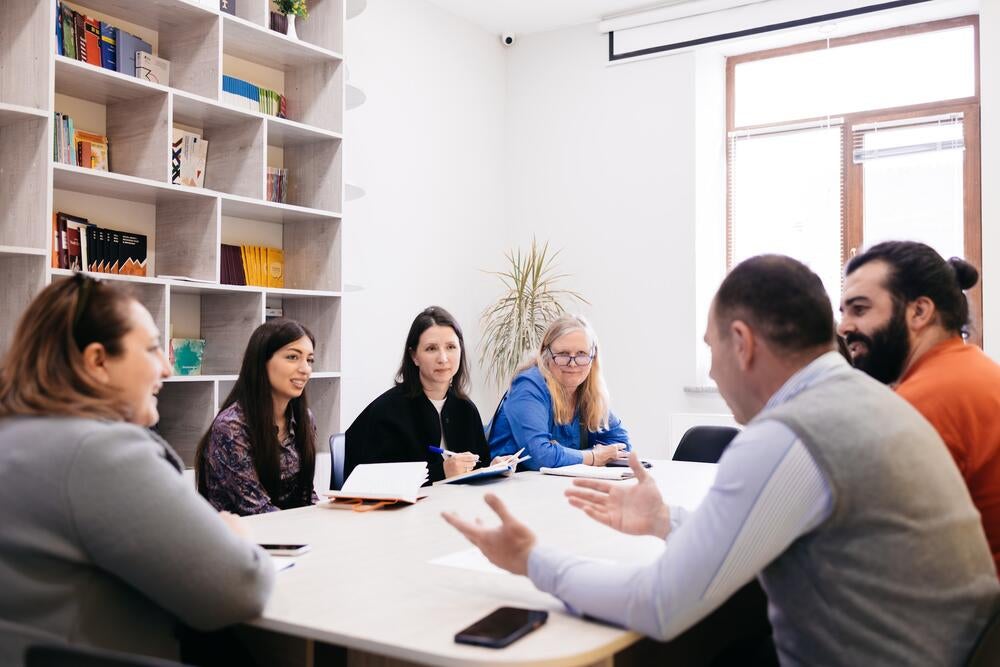
“The EU4GE programme brings real change. We are seeing shifts in attitudes and men stepping up as partners in gender equality. When families prosper, communities prosper. Gender equality is at the heart of this progress,” said Lusine Sargsyan, Head of Office, UNFPA Armenia.
Site engagements across Yerevan and targeted regions spotlighted key programme activities from policy improvements and parenting education, to survivor support and initiatives for women with disabilities.
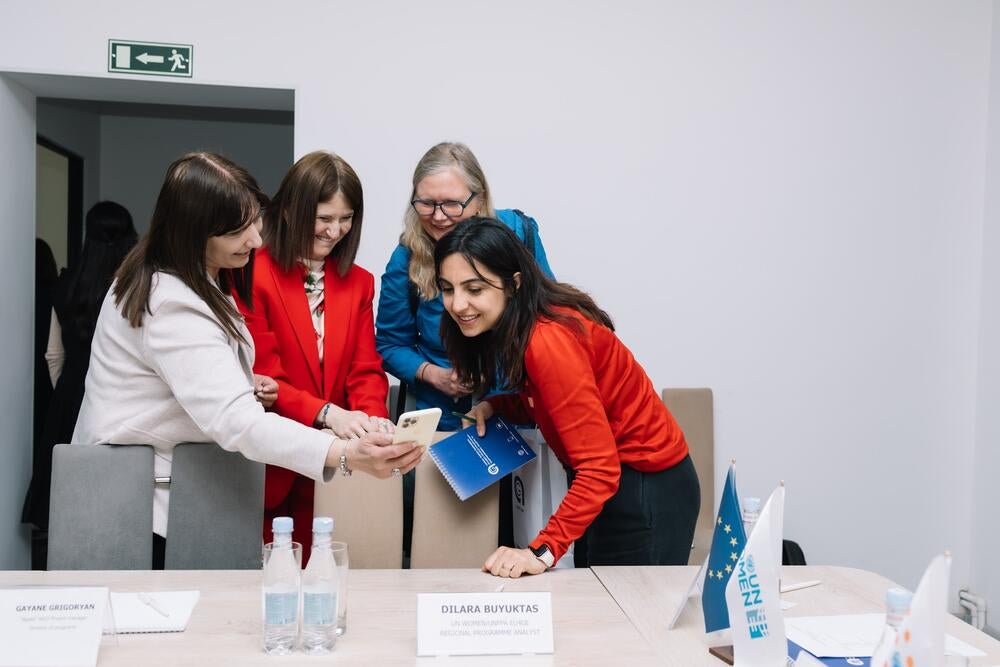
“Investing in programmes for women and girls with disabilities is essential to achieving true gender equality and preventing violence. Women and girls with disabilities often face compounded forms of discrimination and are at heightened risk of gender-based violence. Targeted funding enables the development of inclusive policies, accessible services, and empowerment initiatives that address their unique needs. By prioritizing such investments, we not only uphold the rights and dignity of women and girls with disabilities but also foster a more equitable and inclusive society for all,” highlighted Gayane Grigoryan, Director of Programmes at Agate NGO on rights of persons with disabilities.
Fathers redefining roles
At the Gyumri Family Corner, supported through the programme, young fathers gather to learn about co-parenting, gender equality, and active fatherhood. One of them, Mkrtich Hovhannisyan, a Papa Club facilitator, knows the journey first-hand.
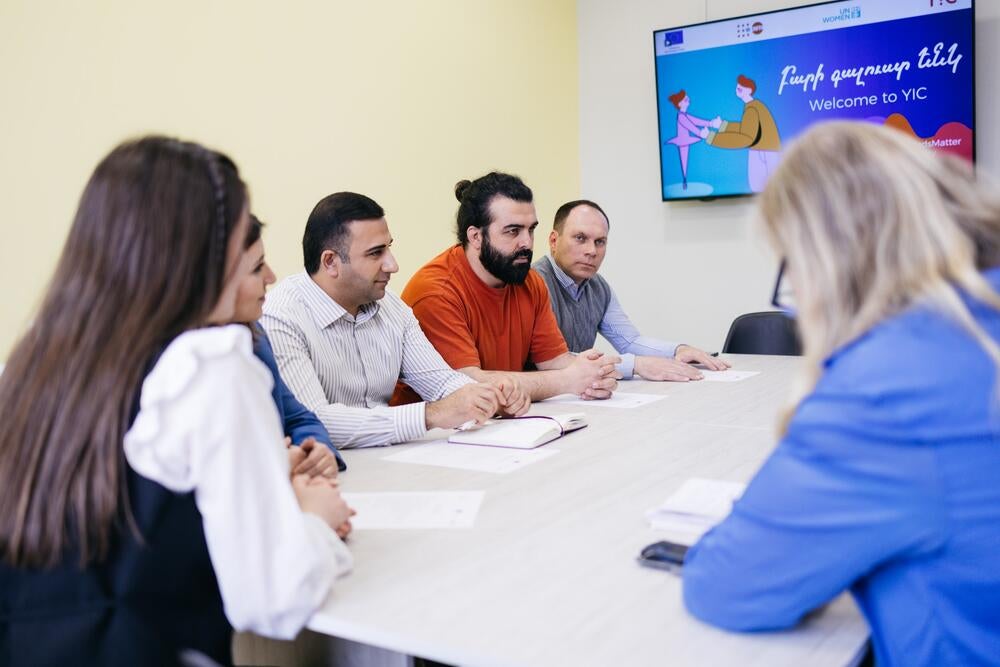
“My journey started as a Papa School participant during the first phase of the programme, and now, I’m one of the leader-men striving to drive change. A strong family is built on the foundation of equality at home, and it's inspiring to see young men embrace their roles in a new way.”
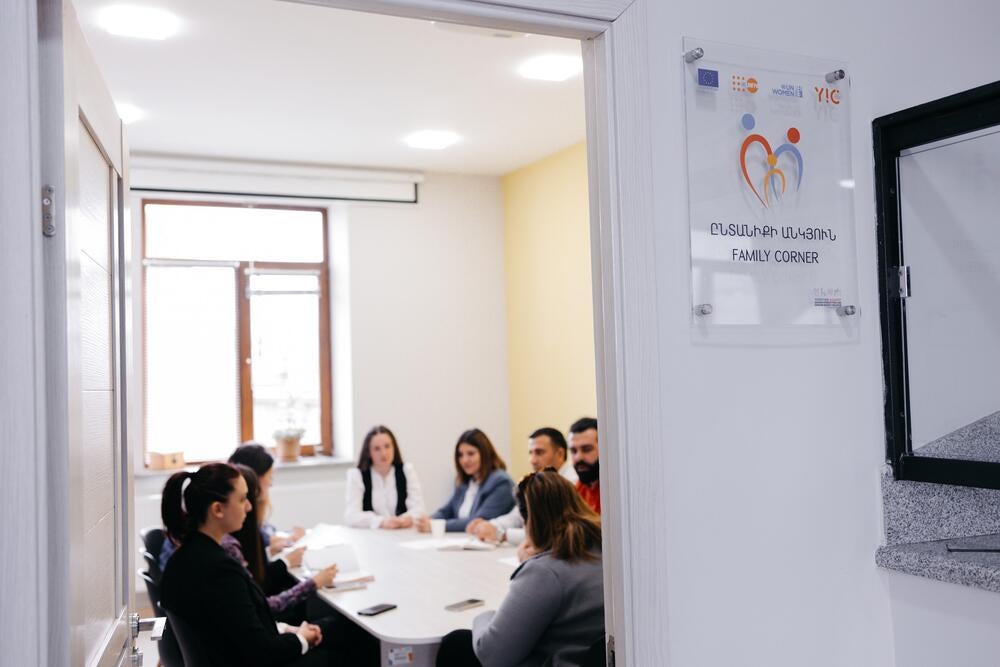
Across three regions—Shirak, Lori, and Tavush—the programme has helped establish Family Corners, safe spaces where families, young and expecting parents, explore the best ways to share responsibility at home.
“Young people are the heartbeat of change. Through our Family Corners and Papa Clubs, we’re creating conversations that empower families, strengthen bonds, change stereotypes about the roles of women and men, and promote equal parenting — shaping a brighter, more inclusive future for Armenia,” said Artur Najaryan, International Board Chairperson of the Youth Initiative Centre, which is the UNFPA’s partner for implementing Papa Clubs.
Religious leaders - ambassadors of change
One of the programme’s unique strengths is the engagement of religious leaders in the dialogue on gender roles and family dynamics. Under the programme, UNFPA Armenia partners with the WCC Armenia Round Table Foundation, empowering Armenian church priests and social workers to promote gender equality and prevent domestic violence.
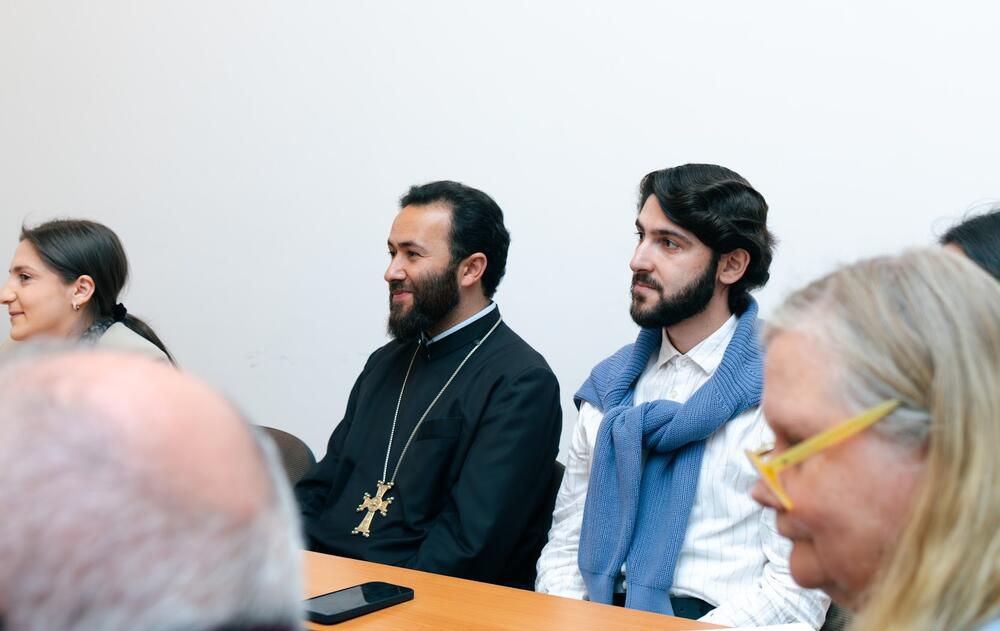
“One of the most critical aspects of our work has been addressing violence,” said Fr. Mambre Voskanyan, a priest from Lori region who participated in programme-supported capacity-building trainings. “Preventing violence is about creating a culture that values each family member equally. Men and women in our community increasingly recognize that violence has no place in a godly household and that peaceful conflict resolution strengthens family bonds.”
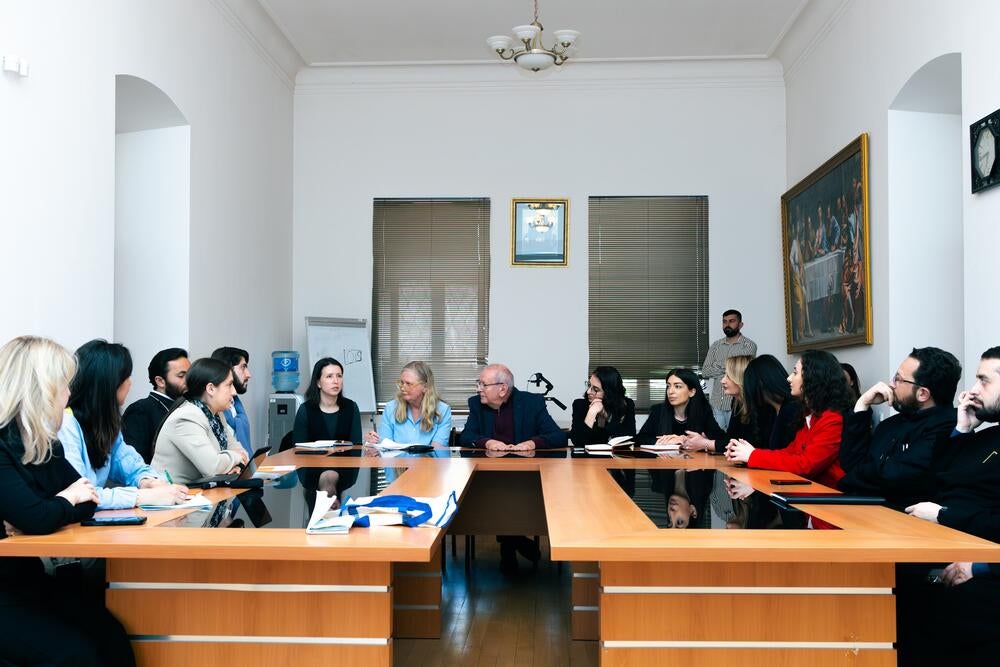
Voices of survivors and empathy in action
Lena Karlsson also engaged with two key UN Women-supported initiatives—"In Her Shoes" and "Voices Against Violence"—implemented by the OxYGen Foundation and the Sexual Assault Crisis Center. “Through the 'In Her Shoes' methodology, we help participants walk the path that women subjected to violence go through,” explained Hranush Yesayan, a facilitator. “This is not just an exercise — it is a powerful tool to awaken empathy and to show the role each of us can play in preventing domestic violence.”
The "Voices Against Violence" initiative equips young people with innovative tools to challenge harmful gender norms in their families, schools, and communities. “I’ve seen how open discussions about stereotypes and respect lead to real change. Girls grow more confident in defending their rights, while boys recognize their role in ending violence. This programme helps shape a generation that believes in equality and knows how to stand up for it,” stressed Anet Shamirian, Voices Against Violence trainer.
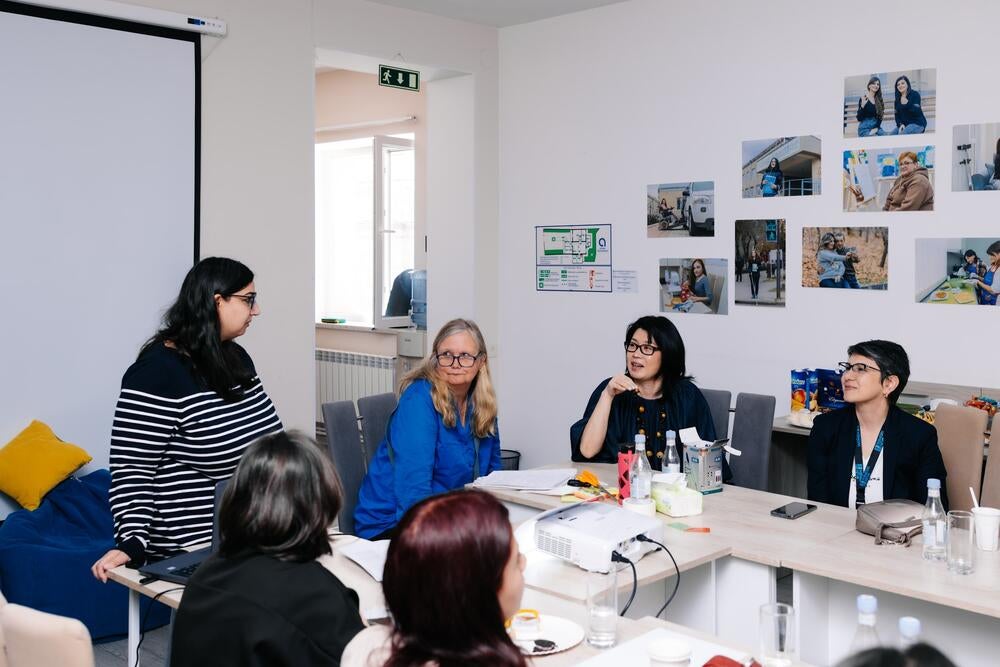
“Through innovative awareness-raising tools designed for youth and grassroots communities, the EU 4 Gender Equality project empowers them to better understand existing laws, prevention strategies, and support mechanisms in Armenia. This approach has strengthened efforts to break gender stereotypes and increase sensitivity towards survivors of violence against women and domestic violence”, said Kaori Ishikawa, Country Representative in Georgia and Liaison for the South Caucasus.
Measurable Change
At the regional level, the programme’s impact is already visible. Alongside direct interventions, millions have been reached through awareness campaigns, training sessions, and collaborative community projects.
“In Armenia, as in the rest of the region, discriminatory social norms and gender stereotypes are slowing down progress on gender equality,” said Olga Osaulenko, Regional Programme Manager of the EU4GenderEquality programme. According to the baseline study conducted by the programme, nine out of every ten women in Armenia (89 percent) state they are primarily responsible for performing unpaid domestic tasks. Around half of Armenian women and men (47 vs 54 percent) believe that violence, while unacceptable, should not always be punishable by law. “The "EU 4 Gender Equality" programme is helping to change that by supporting men to become active fathers, helping women access opportunities, and working with young people and faith leaders to challenge stereotypes,” stressed Olga Osaulenko.
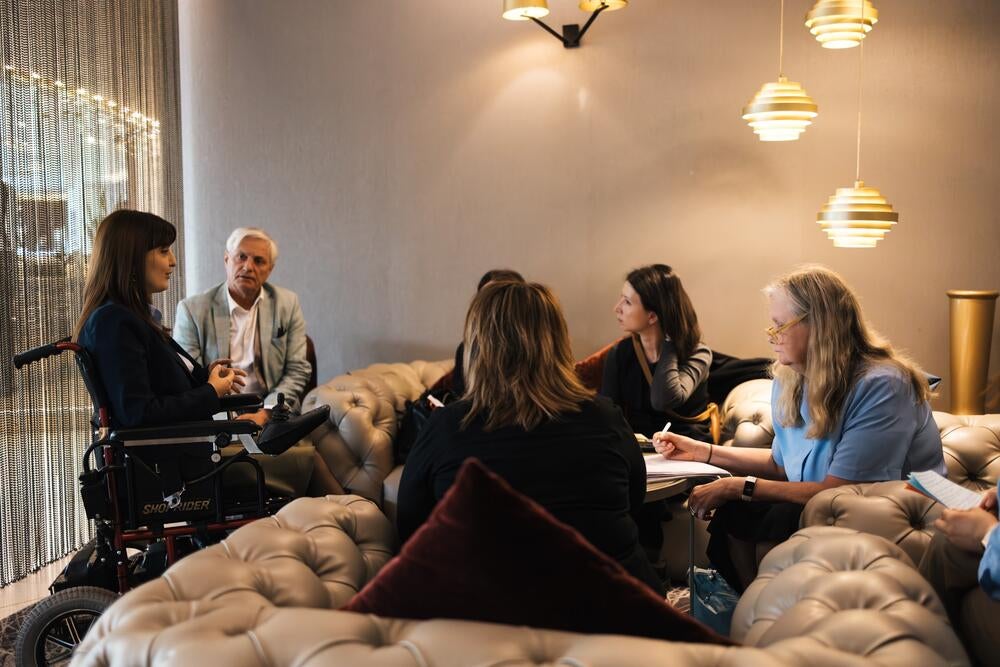
Programme partners believe that gender equality is not a distant vision, but a shared responsibility that begins at home, in communities, and within institutions.
This publication was produced within the “EU 4 Gender Equality: Together against gender stereotypes and gender-based violence" programme (phase 2), funded by the European Union, implemented jointly by UN Women and UNFPA. Its contents are the sole responsibility of UN Women and UNFPA and do not necessarily reflect the views of the European Union.

